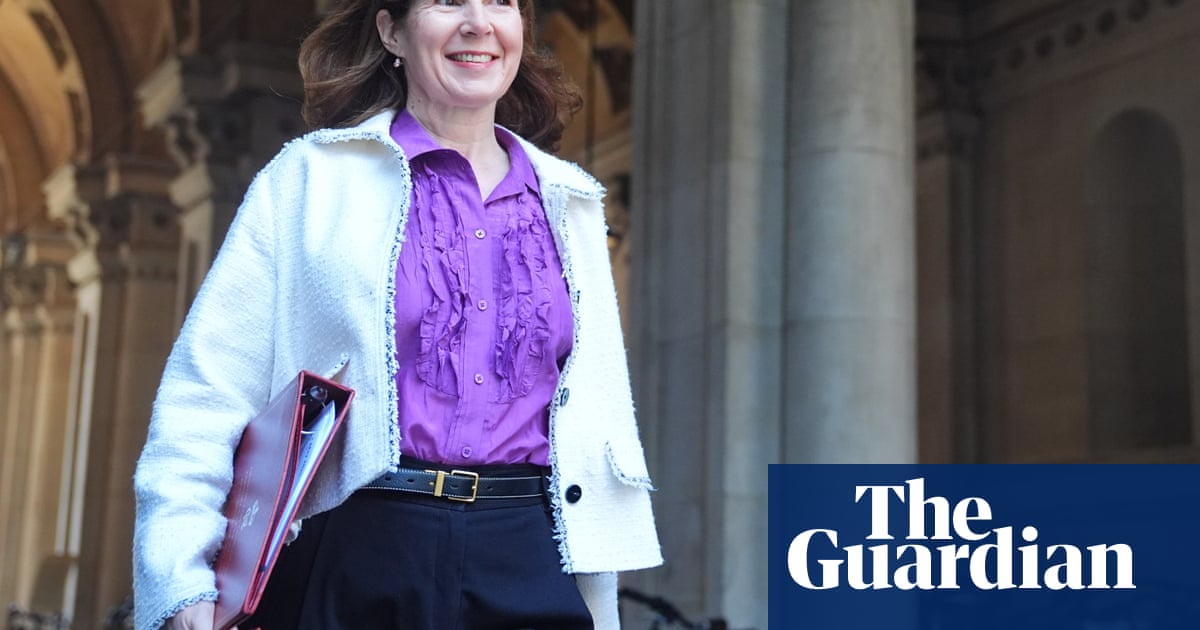“In her mind this was a bastion of the establishment, she was a little worried of rejection,” Kanbar Hossein-Bor said of his mother’s reaction, two decades ago, to the news he was applying to work in the UK Foreign Office.
This week, the fear that “he might not be British enough” was proved wrong, when Hossein-Bor was appointed as the UK’s high commissioner to Fiji – the first refugee to achieve the rank.
For the 44-year-old, who did not speak English when he fled Iran as a child in 1987, the role is an opportunity to strengthen the UK’s “deep historic bond” with Fiji, as it faces a “huge challenge around climate”.
The father of two, who spoke to the Guardian shortly before a customary audience with King Charles, sees the role as a chance to defy preconceptions. “One thing I really want to convey through my own journey is that enormous sense of gratitude I have to the British people, who have taken a first-generation immigrant, and welcomed them,” Hossein-Bor said.
“I am worried there is a depiction of refugees and asylum seekers as people who come here and just take, take, take and don’t give enough back. For me, Britain’s given me all these opportunities and my career is a sense of me giving back.
“I hope in my own modest way, we can be challenging the stereotype of what it means to be British and inspiring other people. I passionately believe this, the UK, while we may not be perfect, when it comes to issues about race and migration, we probably have the best story out there. Globally, people can look at what we do.”
Born into a prominent Balochi family in the borderlands of Iran, Pakistan and Afghanistan, Hossein-Bor’s mother came to the UK as a refugee, escaping the turmoil of the years after the Iranian revolution.
He was six when he was driven across the “very mountainous, arid, desert-like” Pakistan border, heading for a refugee camp and a new life in the UK, excited to be reunited with his mother, while feeling the “trepidation” of the “smuggling route”.
The Iran he left was one where schoolchildren were made to chant “death to the UK, Israel and America”. His new home was suburban Southampton.
The kindness a teacher showed him on a school trip to France after Hossein-Bor and his twin sister were separated from other pupils – because they were travelling on “blue UN travel documents” – was formative. So was being cast as Winston Churchill in a school play.
After winning an assisted place to grammar school, Hossein-Bor studied law at Warwick and Cambridge before practising as a barrister, joining the Foreign Office as a legal adviser and transitioning to a diplomatic career, serving in Iraq during 2007’s US “surge” offensive.
after newsletter promotion
A Balochi, Arabic and Farsi speaker, Hossein-Bor’s “international outlook” was shaped by a family steeped in stories of Persia’s dynasties, the British empire and their interactions with the Balochi people.
He added: “There’s a man called Sir Robert Sandeman, a colonial official who worked for the British empire on the borders of the then Iranian empire and the British empire. His job was to quell the unruly tribes there, many of whom were my ancestors. He’s written a lot about how he was there to divide and rule.
“For me, to be his administrative successor – one of the great-grandchildren of the tribes – in the same building as him, both of us pursuing British national interests, albeit in a very different time, was quite a moment, because it reflects how the UK has changed, how I’m an instrument of change, but also how I’ve been able to step in the footprints of lots of countless people, other people of colour, who have made that journey easier for me. You just need to look at our foreign secretary [David Lammy] and the former prime minister [Rishi Sunak], to name but a few.”
A Foreign Office spokesperson said: “We are proud to be a diplomatic service where individuals of all backgrounds can rise on merit and realise the opportunity to serve the UK. Kanbar’s story, as well as many others, embodies that. We congratulate him on his appointment as British high commissioner.”

 6 hours ago
6
6 hours ago
6

















































